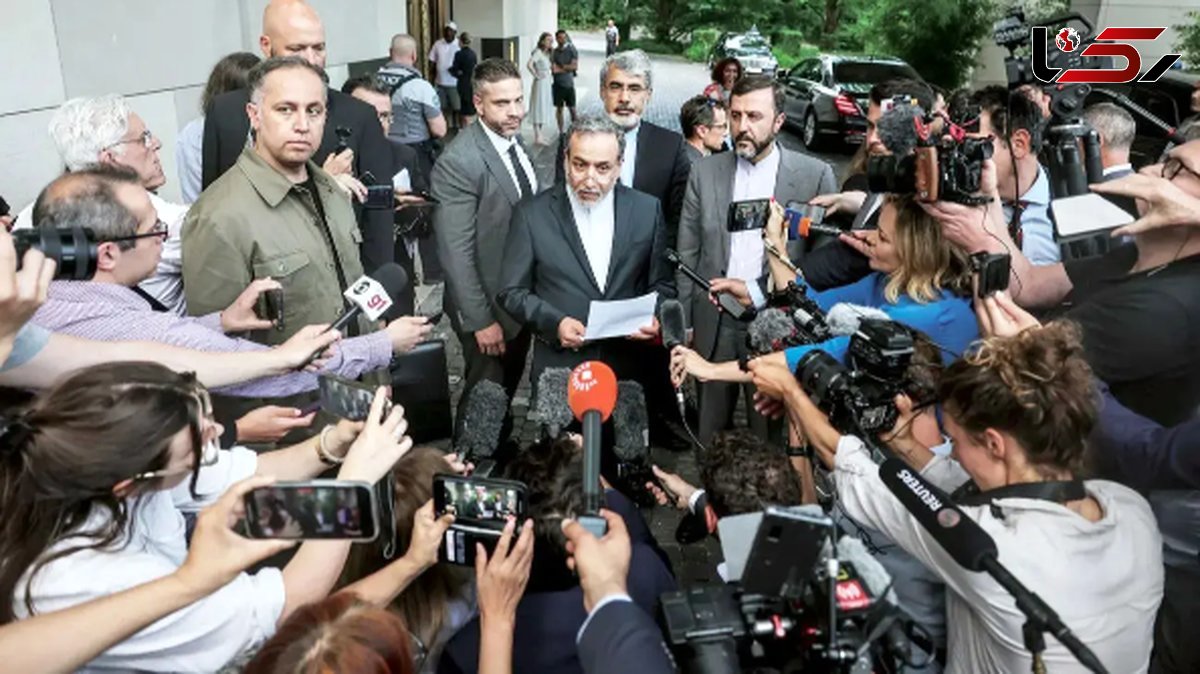Future of Agreement Hinges on Political Will: Is Abandoning Diplomacy Logical?
Rokna Political Deskl: Diplomatic tensions between Iran and three European powers at the United Nations Security Council have reached a critical juncture. The standoff appears to be nearing its end, with both sides moving rapidly toward confrontation and neither showing willingness to de-escalate. Unless an extraordinary development occurs within the next five days, an event on Sunday, September 27, could fundamentally alter the nature of Iran’s relations with European powers and the European Union.

According to Rokna, the language of dialogue between Iran and the three European countries in recent months has shifted into one of threats. The Europeans warn that unless Iran takes concrete steps to address concerns over its nuclear program, six previously suspended UN Security Council resolutions under the JCPOA will be reimposed. Iran, in turn, has threatened that if sanctions are reinstated, it will exclude Europe entirely from nuclear talks and cut off cooperation with the International Atomic Energy Agency. Over the past two weeks, Iran has offered initiatives aimed at persuading the Europeans to refrain from reactivating the suspended Security Council sanctions.
However, none of these proposals satisfied European demands. The European argument is that Iran has offered no tangible measures to address their concerns ahead of the September 27 deadline for the return of UN Security Council sanctions. Tehran, for its part, has declared that it will not grant concessions under pressure and insists that the Europeans must first back down from their position. Iranian officials argue that Europe’s call to trigger the “snapback” mechanism is illegitimate and unlawful, stressing that given Europe’s failure to uphold its JCPOA commitments, the three European powers have no right to invoke the agreement’s provisions to restore past sanctions.
Thus far, Russia and China have supported Iran’s stance. Yet many analysts believe that their political backing will have little effect on whether countries worldwide comply with a revived sanctions regime.
Ultimately, five days remain for Iran and the three European powers to reach a mutually acceptable arrangement to halt or delay snapback implementation in order to provide time and space for further negotiations. But neither Tehran nor the European capitals appear to possess sufficient political will to reach such an accord. Observers note that Europeans seem to have lost all confidence in diplomacy with Iran and, following Washington’s lead, have adopted a maximum-pressure approach—one likely to harden Tehran’s position further and deepen the chill in relations.
A side effect of this European policy is the strengthening of ties between Iran and Russia, Europe’s principal adversary, further exacerbating the cooling of relations between Tehran and Brussels. Analysts point out that Iran has missed multiple opportunities in recent years to resolve nuclear disputes with the three European powers, eroding Europe’s trust in Iran as a negotiating partner with the necessary determination to resolve disputes.
There is no doubt, however, that Iran’s reluctance to reach an agreement with Europe stems in part from Europe’s unfriendly and at times hostile behavior toward Tehran, and past negotiation failures do not vindicate the European side. Nevertheless, Iran has always retained opportunities to attract Europe toward a settlement by using diplomatic channels and finding compromise solutions. Over the past four years, particularly since the start of the 13th government, Tehran’s excessive reliance on direct and indirect negotiations with the United States and sidelining Europe from the negotiation process has disrupted the Iran-Europe dialogue, weakening Europe’s role as a facilitator in the nuclear talks to its lowest point.
Still, the five-day window during which Iranian and European diplomats and leaders are present in New York offers a slim chance for reviving diplomacy before the confrontation expected on September 27. While many analysts have given up hope for diplomatic success in the coming days, a serious and determined political will in Tehran could avert a prolonged diplomatic crisis with Europe—one that may otherwise begin next week and extend well into the foreseeable future.
Send Comments